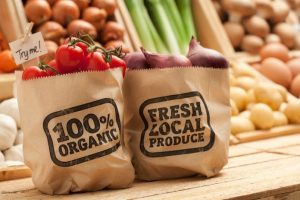Representatives Lois Capps (D-CA) and Richard Hanna (R-NY) have introduced the Organic Standards Protection Act to the U.S. House of Representatives to give the National Organics Program authority to make sure that foods labeled with the organic seal quality for that designation.
 The Organic Trade Association and the National Organic Coalition support this bill.
The Organic Trade Association and the National Organic Coalition support this bill.
The legislation would:
- Grant the USDA the authority to stop the sales of products labeled “certified organic” when they are not organically produced or grown.
- Streamline the recordkeeping requirements of the 1990 Organic Foods Production Act. All organic producers and certifiers would be required to maintain records and sent them to the USDA.
- A fine of up to $10,000 per incident would be levied for those who continue to label their products organic after the USDA has revoked their certification.
The USDA does not currently have investigative authority over the organic certification program. The National Organic Program cannot stop the marketing or labeling of organic products when they have been treated with pesticides or herbicides at this time. The bill would give the program embargo and stop sale authority.
Rep. Capps said in a statement, “This bipartisan legislation is a win-win, for Central Coast farmers and businesses who consistently meet the highest standards for organic products and for consumers who deserve to know that all products on grocery store shelves labeled ‘USDA Organic’ adhere to consistently high standards.” She continued, “failing to weed out impostor products puts our organic industries at a competitive disadvantage and could potentially damage the brand of organic products.”
The organic label applies to fresh, raw products and any processed foods that contain organic ingredients. Facilities and operations that gross less than $5,000 per year are exempted from these standards. There are three standards in this labeling:
- Foods labeled “100 percent organic” must contain only organically produced ingredients and processing aids. Water and salt are excluded from this designation.
- Foods labeled “organic” must consist of at least 95 percent organically produced ingredients, excluding water and salt. The non-organic ingredients must be approved on the National List and must not be commercially available in organic form.
- Foods labeled “made with organic ingredients” must have at least 70 percent organic ingredients.
None of these products can be produced with sewage sludge or ionizing radiation. Any product that has less than 70 percent organic ingredients can’t use the term “organic” anywhere on the label, but they may specify individually produced organic ingredients.




